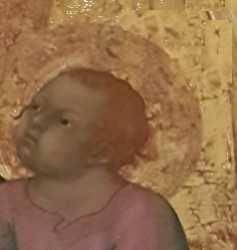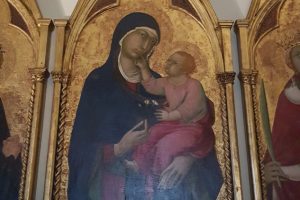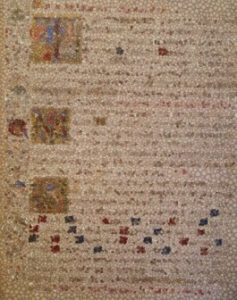
Merry Christmas everyone. What a comfort it is to celebrate Christmas this year.
It shouldn’t be a surprise to see so many opinion pieces about Christmas and Christianity in prominent media outlets online over the past few days – tis the season — but the number and the tone has surprised me.
These articles seem to fall into two camps:
- Earnest apologia
- Grievance
I think Christmas needs no apology. Rank commercialism — particularly the runaway commercialization of the pagan aspects of the Christmas season: the winter solstice, Christmas tree, yule logs, Santa, the north pole, eggnog, etc. — can do with a big apology. I love it in moderate doses, but the spirit of Christmas as it is understood by modest Christians requires no apology. You can take it or leave it. I urge all to take it. Begin with Luke 2, verses 1-20. Then, like Mary, treasure these words and ponder them in your heart.
Still, some writers feel compelled to issue vigorous defenses of the precepts of the Christian faith as represented in the narrative of the nativity at this time. A surge in apologia may be the result of a wave of grievances also published at this time of year.
A Christmas grievance
So many writers – maybe it’s a function of some of the blogs I follow – seem to have hearts filled with grievance against the church and religion in general. They love to provide witness and evidence in the form of lists of reasons why the Bible is NOT TRUE. These articles make me sad.
I realize that many have had bad experiences with organized religion. Not just bad experiences. Many have been the victims of criminal behavior and actual crimes. They have been betrayed by the vilest pretenders. These writers have legitimate grievances and I would not deny their right to be heard.
Others in this camp are — for the most part — apostles of the scientific method. They have placed their faith in science and in holding their limited understanding of Christianity in particular and religion in general up to an often similarly limited understanding of the first principles of modern science, they find religion grievously wanting. They write with the zeal of the Grand Inquisitor and would excise religion – as painfully and shamefully as possible — entirely from the human experience.
For the most part, they have my sympathy. I love science – you should my bookshelf of cosmology, quantum physics, and biology books — but I believe that science is only part of the story – the part most obviously accessible to us — not the entire story. I would hate to miss the rest of the story by restricting myself to only that which can be proved by science as we understand it, like an ascetic.
A Christmas apology
Ross Douthat wrote an interesting article on Sunday in the NYTs. Staying Catholic at Christmas.
Full disclosure, I’m not Catholic. But I enjoyed and appreciated his article.
He begins with the problem of the Gospel of Matthew opening with a list of 39 progenitors. How are we to read and interpret this long (and perceived to be tedious) list of persons who we, for the most part, are not familiar with (Abraham, Isaac, David and Solomon, maybe…) Most of us would rather “skip the begats.”
He goes right to meaning, in true apologist fashion, relying on the work of Rev. Herbert McCabe, a 20th-century Dominican priest. He proposes that the list is not to claim/prove relationship to royalty like a dispossessed Romanov, but to demonstrate Jesus’ humanness. That is, he enters the world “through this line” that includes reprobate sinners (who also happen to be patriarchs and royalty) as well as “a few decent men.”
But for us as lay readers this requires too much scholarship: to separate Abraham and Solomon from Judah is awkward; and then there’s David.
And Jesus doesn’t enter the world “through this line”. This is not the genealogy of Jesus. His father is the father in heaven, none of these men. This earthly lineage is the lineage of Joseph, not Mary. But none of this really matters.
The Bible blockchain
Here’s what matters most to me as a reader. And read this passage we should.
First, what this passage illustrates to me is the Bible blockchain. This blockchain links Jesus to Abraham – the original covenant with God – and validates Jesus’ relationship to God and addition to the chain. The blockchain can’t be hacked. The order of transactions is inviolate. Matthew invokes the blockchain to legitimize what he is about to tell us. That this is important and uncorrupted.
The second, is the richness and evocative nature of the names. We don’t need to know who they are, we just need to know that they are real – legitimate — people with names; not just some nameless guy who road in on a camel and then disappeared into the desert. Eleazar and Zerubbabel. You have to love it. Every name is critical in the chain and the order is locked.
The fact that we can then extend a similar chain from Jesus through Peter and all the Popes (and anti-Popes) who followed over the last 2,000 years creates a similar blockchain. It makes it possible for us living today (Catholic and non-Catholic alike) to conceive of actual degrees of separation from Jesus. There is a man living today, who actually knew a man, who knew a man…. who knew Peter, who walked and broke bread with Jesus of Nazareth.
It’s not what it means that’s important. It’s what it does. The blockchain makes the transaction/covenant possible.
Decoding the chain
It’s important not to read this passage from Matthew in a dry and dutiful way; as a slow march through time. The chain is strong and vigorous. We can break it up into the two groups of 14 generations. Each group can be broken into triads of three names each, with the last triad of each group composed of two names and an event: “the deportation to Babylon” and “who is called the Messiah”. Each triad is spoken quickly with a slight pause between each one. The momentum builds with each link added to the chain. Each name is a proof and must be fully articulated. Once the chain has been invoked, we can get on to the real business at hand: “Now, the birth of Jesus the Messiah took place in this way.” Adding the next link in the chain.
This is not what it means to be Christian. It’s what it’s like to be a Christian. To be part of something much bigger than any one of us alone. Merry Christmas.

